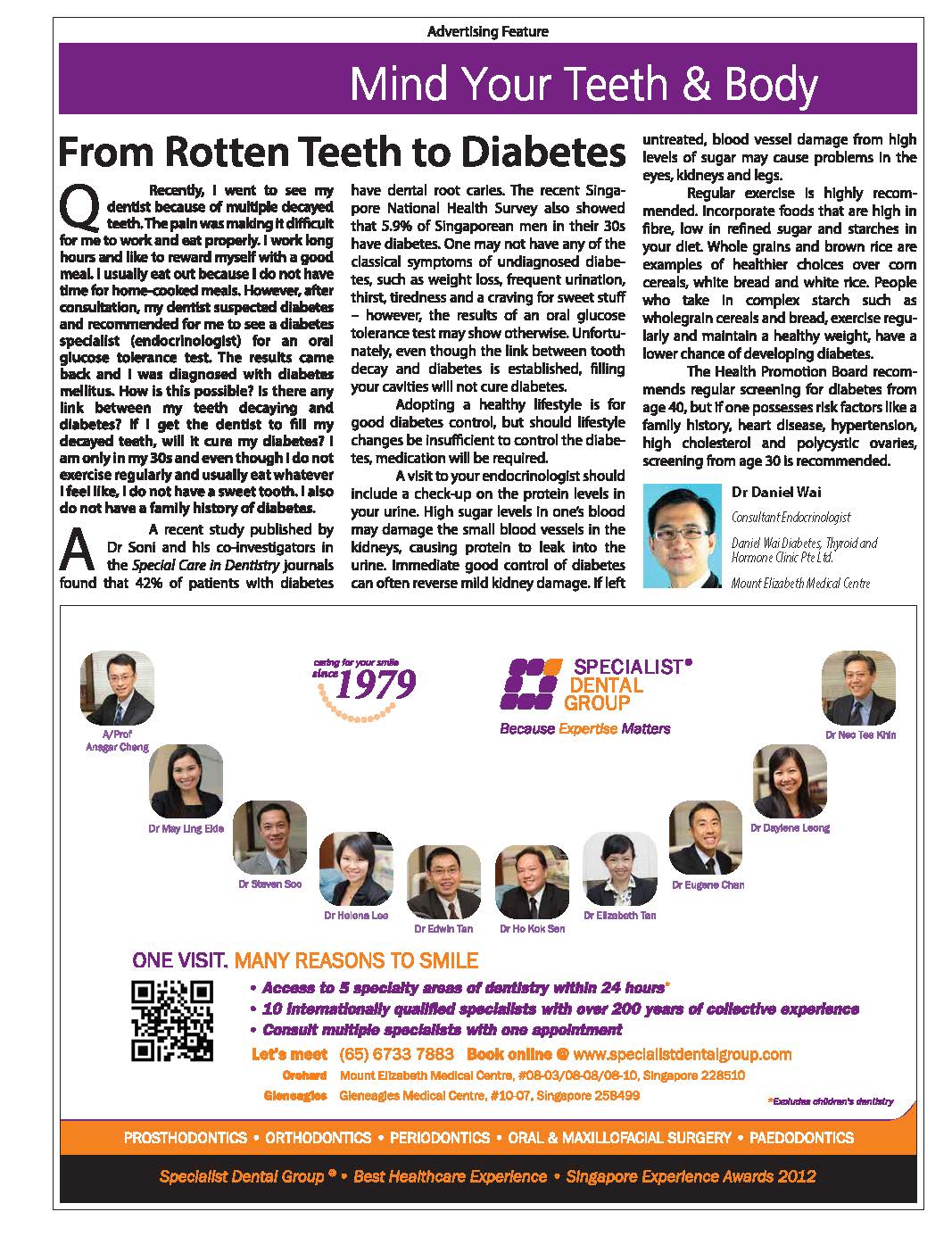 This article first appeared in the May 1st, 2014 issue of The Straits Times Mind Your Body. We have reproduced it for the information of those of you who missed it when it was published.
This article first appeared in the May 1st, 2014 issue of The Straits Times Mind Your Body. We have reproduced it for the information of those of you who missed it when it was published.
Q. Recently, I went to see my dentist because of multiple decayed teeth. The pain was making it difficult for me to work and eat properly. I work long hours and like to reward myself with a good meal. I usually eat out because I do not have time for home-cooked meals. However, after consultation, my dentist suspected diabetes and recommended for me to see a diabetes specialist (endocrinologist) for an oral glucose tolerance test. The results came back and I was diagnosed with diabetes mellitus. How is this possible? Is there any link between my teeth decaying and diabetes? If I get the dentist to fill my decayed teeth, will it cure my diabetes? I am only in my 30s and even though I do not exercise regularly and usually eat whatever I feel like, I do not have a sweet tooth. I also do not have a family history of diabetes.
A. A recent study published by Dr Soni and his co-investigators in the Special Care in Dentistry journals found that 42% of patients with diabetes have dental root caries. The recent Singapore National Health Survey also showed that 5.9% of Singaporean men in their 30s have diabetes. One may not have any of the classical symptoms of undiagnosed diabetes, such as weight loss, frequent urination, thirst, tiredness and a craving for sweet stuff – however, the results of an oral glucose tolerance test may show otherwise. Unfortunately, even though the link between tooth decay and diabetes is established, filling your cavities will not cure diabetes.
Adopting a healthy lifestyle is for good diabetes control, but should lifestyle changes be insufficient to control the diabetes, medication will be required.
A visit to your endocrinologist should include a check-up on the protein levels in your urine. High sugar levels in one’s blood may damage the small blood vessels in the kidneys, causing protein to leak into the urine. Immediate good control of diabetes can often reverse mild kidney damage. If left untreated, blood vessel damage from high levels of sugar may cause problems in the eyes, kidneys and legs.
Regular exercise is highly recommended. Incorporate foods that are high in fibre, low in refined sugar and starches in your diet. Whole grains and brown rice are examples of healthier choices over corn cereals, white bread and white rice. People who take in complex starch such as wholegrain cereals and bread, exercise regularly and maintain a healthy weight, have a lower chance of developing diabetes.
The Health Promotion Board recommends regular screening for diabetes from age 40, but if one possesses risk factors like a family history, heart disease, hypertension, high cholesterol and polycystic ovaries, screening from age 30 is recommended.
Consultant Endocrinologist
Daniel Wai Diabetes, Thyroid and Hormone Clinic Pte Ltd
Mount Elizabeth Medical Centre
Source: The Straits Times © Singapore Press Holdings Limited. Reproduced with permission






